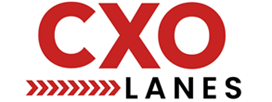Girish Tilak, the Director of Resume Management Consultants (I) Pvt. Ltd., is a distinguished leader in the field of HR solutions with over 25 years of experience in headhunting and executive recruitment. He emphasizes the importance of preparing family businesses for professional leadership, asserting that hiring an external CEO is a bold step toward modernization and growth. However, he notes that success hinges not just on finding the right candidate but also on the organizations . He has a passion for connecting talent with opportunities and his commitment to evolving traditional recruitment methodologies, which has been instrumental in shaping the careers of countless professionals and driving organizational success for a diverse range of clients.
In his insightful article, “Evolving Beyond Head Hunting: Is Your Family Business Ready for a Professional CEO?,” Girish addresses a critical challenge faced by family-run businesses—transitioning from traditional leadership structures to professional management.
Family businesses, often the cornerstone of entrepreneurial success, reach a point where professional leadership becomes essential for sustained growth. However, as Girish highlights, bringing in a professional CEO is fraught with challenges such as:
- Promoter Involvement: Founders may struggle to delegate responsibilities effectively.
- Organizational Readiness: Many businesses lack the structural and cultural preparedness needed for seamless CEO integration.
- Cultural Misalignment: Differences in values and vision between promoters and external CEOs can hinder progress.
- Resistance to Change: Employees and family members may resist the modernization and professionalization of the business.
The Role of Organizational Diagnostics
To address these challenges, Girish emphasizes the importance of organizational diagnostics—a structured process to evaluate a company’s readiness for professional leadership. This process involves:
- Assessing the willingness of promoters to delegate authority.
- Identifying structural gaps, such as undefined roles and decision-making frameworks.
- Evaluating employee openness to change.
- Defining the ideal CEO profile, ensuring alignment with the company’s values and strategic goals.
A Blueprint for Successful Leadership Transitions
Girish provides actionable steps for family businesses to prepare for a professional CEO:
- Self-reflection by promoters to redefine their roles.
- Establishing governance frameworks with clear policies and authority matrices.
- Engaging HR experts or management consultants to facilitate the transition.
- Promoting cultural alignment to balance traditional values with fresh perspectives.
- Empowering the CEO with the autonomy needed to lead effectively.
Conclusion
Girish’s insights provide a roadmap for family businesses aiming to unlock their potential through professional leadership. By addressing foundational issues and leveraging tools like organizational diagnostics, businesses can ensure a smooth transition, fostering innovation and sustainable growth.
